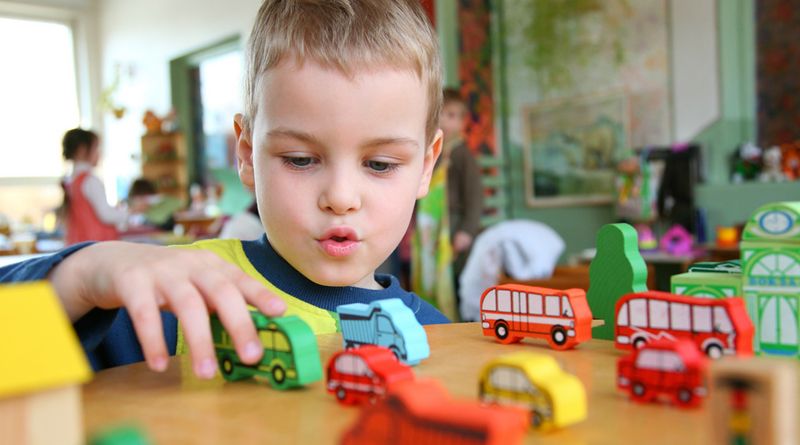
What is a Pediatric Neuropsychologist?
By Dr. Sarah Levin Allen
Does a Neuropsychologist Know What You’re Thinking?
When you tell someone at a cocktail party, remember when we did those things, that you’re a pediatric neuropsychologist, you tend to get something like, “Oh, my cousin is a nurse too!” As a matter of fact, it’s happened so often that I finally just started telling people I was a “brain gal.” Usually this results in a few “Ooo tell me what I’m thinking(s)” or “what am I thinking now(s) and after I entertain myself with some guesses of my own (we’re at a party after all), I let them down gently by telling the truth…a neuropsychologist doesn’t really know what you are thinking.
The Reality of Neuropsychology
A neuropsychologist specializes in brain behavior relationships. Our background is in clinical psychology, so we have a foundation in comprehensive mental and behavioral health including an understanding of psychopathology, diagnostic assessment, and intervention. In addition to that, we also study disorders of the brain and nervous system that can alter the way people think and behave.
What does all that mean, exactly? Well, essentially, we’re interested in the brain’s abilities. These include the areas of attention, language, memory, executive, visual-spatial, and processing speed. We want to know how the brain does what it does including how it pulls information in and how it sends it back out into the world. Different brains are our jam, and we get joy out of discovering their possibilities!
In pediatric neuropsychology, we have the added interest in school performance. We have specific training in how the brain develops, which we can apply to the evaluation and management of children with brain-based disabilities or disorders. Whereas adult neuropsychology focuses on return to work or community or improving functioning in these areas, we focus on schooling or improving kids’ experience with learning among their peers
Understanding a Child’s Abilities & Challenges
In my practice, many families come to me wanting answers to why their child is having trouble in school. I explain to them that there isn’t a math, reading, or writing part of our brain. There are a set of abilities that our brain uses to apply to those subjects. Just think about reading for a second. Your child must attend to the words, see the visual letter on the page, understand that a circle with a line next to it is a symbol for an “a”, then associate that symbol with a sound (for 26 letters!), then blend that sounds with the others to create a word, and then understand what that word means. We haven’t even gotten to the concept of putting that in the context of a sentence or gaining an abstract understanding!
Each piece of an academic subject’s cognitive process can be broken down and looked at across subjects and settings. When you do that, you gain a much better understanding of the brain-behavior relationship and the picture becomes much clearer.
In addition to the potentially complicated nature of everyday thinking and behaving, kids also have emotional variables. The impact of having a “different brain” can create difficulties when interacting with a world that thinks and behaves very typically. Because of our background in clinical psychology, neuropsychologists are also savvy at incorporating this into our analysis.
Finding Strengths
A pediatric neuropsychologist can provide feedback on how fabulous a different brain can be! Knowing how a child’s brain might think and behave differently, and where the strengths and weaknesses are often gives kids a sense of control over their world. I can’t tell you how many times a child has expressed a feeling of helplessness when they walk into classroom. Without a good understanding of how and why their brain works differently, they feel like their performance is just random: they’ll either do well or poorly (usually based on the way the teacher happens to present information).
When kids understand their brains, they can seek what they need from their teachers and coaches and parents. They know what they need, and the people in their world know what they need. This is the recipe for success!
What Can Be Gained From an Evaluation
Here’s a list of what you and your child can gain from a neuropsychological evaluation:
- Understand how your child learns best
- Understand your child’s cognitive and behavioral strengths and weaknesses
- Understand why your child may struggle in school
- Identify a diagnosis that explains your child’s difficulties
- Bring together reports from various providers (e.g. Audiologist, Developmental Pediatrician, Occupational/Speech/Physical Therapist, Optometrist, etc.) into one cohesive report and description of your child.
- Have a provider work with your child’s school team to help develop the best treatment and intervention plan in school.

Dr. Sarah Levin Allen, “The Brain Gal” is a pediatric neuropsychologist with a passion for helping parents raise happy brains! She consults with schools and families to create the optimal learning environment for little brains at school and home. Through neuropsychological assessments and coaching, she teaches people how to use brain science to their advantage. Parents can use these brain tips and tricks to find who they are, who their children are, and what their values are so they can raise happy brains at home and the community. Visit Dr. Allen’s website at www.brainbehaviorbridge.com for more information about her services!




